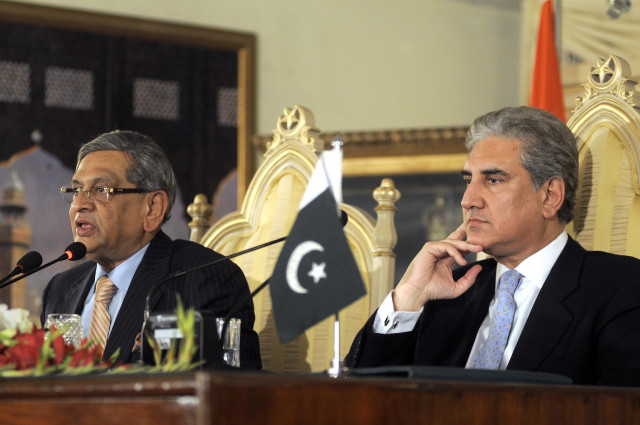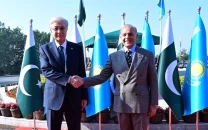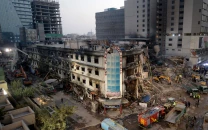Stalled peace talks: Pakistan, India break the ice
Krishna renews invitation to Qureshi; top bureaucrats of the two countries to meet in Bhutan next month.

New Delhi had called a ‘time-out’ in the slow-moving talks with Islamabad, known as composite dialogue, after gunmen mounted attacks on Mumbai’s landmarks in November 2008. And subsequent attempts to put the process back on track have ended in naught.
“Pakistan has accepted India’s offer for talks between foreign secretaries of the two countries on the fringes of a meeting of foreign ministers from the South Asian Association for Regional Cooperation (Saarc),” a Foreign Office official told The Express Tribune.
“The foreign secretaries of the two countries will meet in Thimphu in February,” said the official, who asked not to be named.
This will be the first meeting between the top bureaucrats of Pakistan and India since September last year when they had failed to break a deadlock in their talks in New York on the margins of a UN General Assembly session.
The two countries have had high-level contacts since the Mumbai attacks but New Delhi’s insistence on discussing only terrorism-related issues hampered the progress, according to the Pakistani official.
He said that in the Bhutan meeting, the two foreign secretaries would try to iron out differences on issues that have so far prevented the two nations from resuming the stalled talks.
Islamabad wants a clear roadmap for the composite dialogue while New Delhi links it with progress on the prosecution of suspects of the Mumbai attacks, which India blamed on the Pakistan-based militant outfit, Lashkar-e-Taiba.
The latest development comes as Indian External Affairs Minister SM Krishna renewed the invitation to his Pakistani counterpart Shah Mahmood Qureshi to visit New Delhi.
Qureshi was originally scheduled to visit India in December last year but the trip did not materialise because of a disagreement on the agenda of the talks.
“The visit of Foreign Minister Qureshi will depend on the outcome of the talks between the foreign secretaries in Bhutan,” said the Foreign Office official.
“If the talks are successful and India agrees to discuss all issues including Kashmir, the foreign minister will certainly visit India,” he added.
Foreign Office Spokesman Abdul Basit said Pakistan wants meaningful and result-oriented dialogue with India. “Foreign Minister Qureshi has already stated that he will not visit India just for photo-ops,” he added.
The two foreign ministers last met in July 2010 in Islamabad but failed to put the derailed peace process back on track.
Published in The Express Tribune, January 8th, 2011.



















COMMENTS
Comments are moderated and generally will be posted if they are on-topic and not abusive.
For more information, please see our Comments FAQ